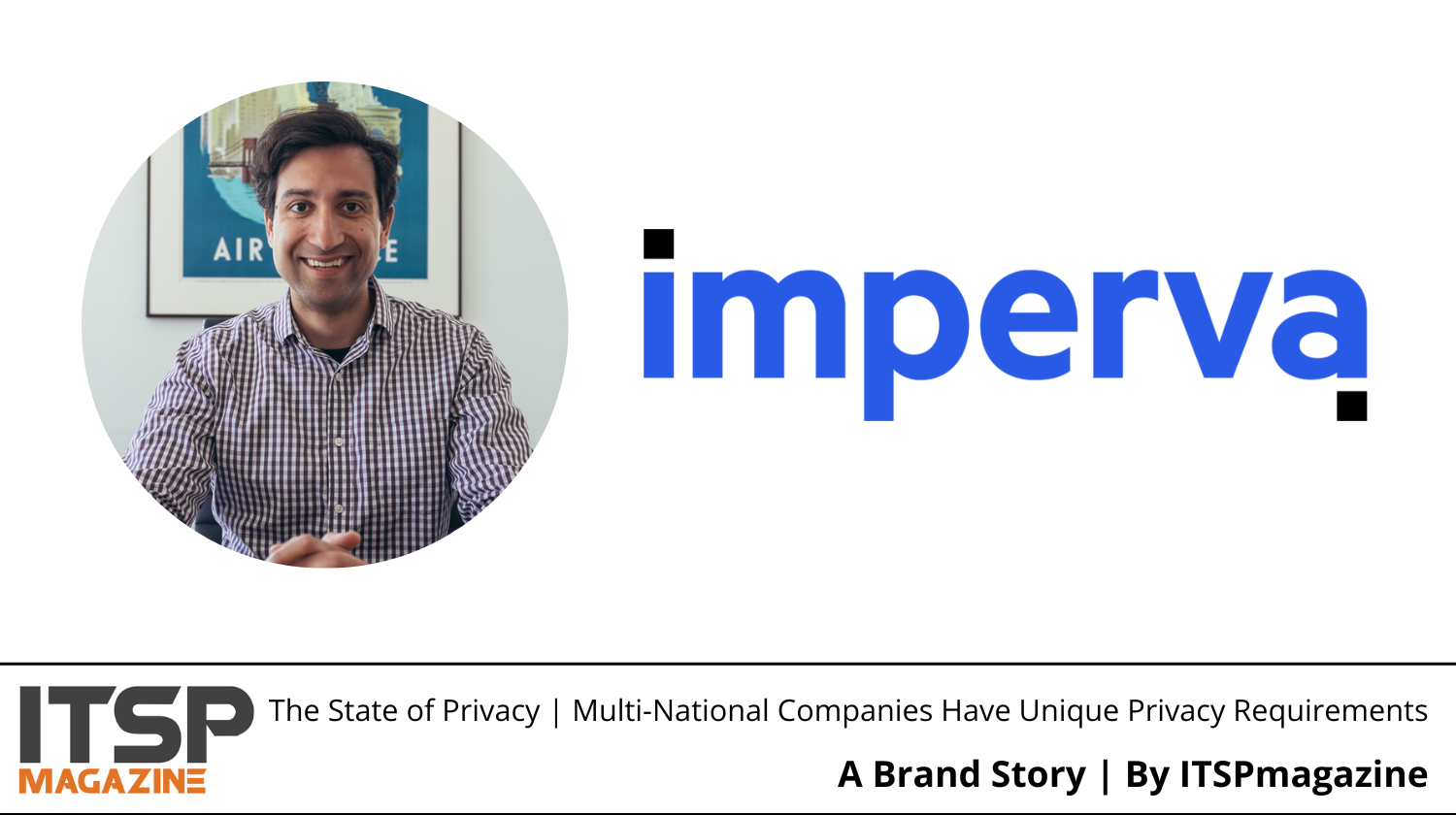A Their Story conversation with Sean Martin, Marco Ciappelli, and Imperva executives
We live in a global economy with a global Internet—but is there just one Internet?
This is a 2-part podcast series with Imperva executives. The series will explore the role of the Internet(s) in defining and enforcing data privacy policies around the world.
Subscribe to the newsletter and Subscribe to the podcast to get notified of future episodes.
Episode 1: One Planet, A Global Economy, And Multiple Internets — And Privacy Is Out Of Control
Guest
Kunal Anand, Chief Technology Officer at Imperva (@ka on Twitter)
Once upon a time, there was one internet for which we all got excited about. It united researchers, opened up economies, fueled technological innovation, offered new opportunities for knowledge and education, and made the world far more understandable for everyone. Then something weird happened to the future; we went backward.
Several forces are converging that have put privacy in peril, and the years ahead are not going to get better unless we do something about it. Things like a "fractured Internet," an organization's lack of data security expertise, or even governments dictating which tech companies can, and cannot, do business in their country (e.g., US / TikTok).
There's much more to this story, though, a lot of which may not readily come to mind if you don't pause to think about the technological times we are living in for a moment.
“People don’t really acknowledge the fact that there are multiple Internets and there are consequences. And, there’s so much overhead and so much pain in terms of security and maintenance that comes along with it.”
There is a trend underway to create multiple Internets (or at least numerous walled environments) that change how companies and customers interact with each other. These can be nationally-driven walled gardens, financially-incentivized, criminally-controlled, or even tribunal. These are just a few examples of where things are any may be heading.
In all of this, when they can, the government tends to get involved as well. We see regulations and laws by state, by country, and by multi-state unions. How does technology and culture mash together in different parts of the world, ultimately defining how security and privacy are viewed; what value do the citizens place on privacy? Do environmental challenges/capabilities (low bandwidth/limited connectivity in parts of Africa) change things?
Flipping this on its side, we have to look at this from the technology provider perspective as well. Cloud services are at the core of pretty much everything being built these days, and this will only increase over time, and for the most part, leaving the traditional data in the dust. The cloud services providers are delivering a full operating system, for all intents and purposes—and, with that comes a ton of possibility for the consumers of those services. What else comes with it? A lot of power and control (consider the tech stack lock-in dilemma) and responsibility.
“Make no mistake; every security vendor should realize that it is inevitable that your cloud services provider will attempt to do what you’re doing. It is just a matter of time before it happens.”
In this episode, we get philosophical and then dive down into the realities of life; the realities of business. What’s happened already that makes things challenging—what events are coming that could really put the squeeze on things?
We get into all of this and more.
Hang on to your hat, it's going to be a bumpy ride.
Note: This story contains promotional content. Learn more.
Additional Resources
Episode 2: We Aimlessly Continue The Sprawl Of Our Digital Lives — Who Is Responsible For Managing The Mess?
Guest
Kunal Anand, Chief Technology Officer at Imperva (@ka on Twitter)
What if we could format our data shared with the organizations we interact with the same way we reinstall an operating system and start fresh? We may be too deep for it, but what about a new Social Contract for our Cyber Society.
One can start thinking back and try to figure out where things got out of control. The chance of that being a successful mission is probably meager. Everything happens fast and organically, and just like mother nature, some directions may bring us to a better place than others. Some choices are a keeper, and some need to be tossed or recoded.
In this podcast with Kunal Anand, CTO at Imperva, we look at where we are and where we can go from here. What can we do differently moving forward? How about an excellent plan to start with — for a change.
Networks exist to bring people to apps. Apps exist to bring people to data, and Apps—call them web applications, workloads, APIs, microservices, or whatever name pleases you—are being deployed at a scale that we have never seen before.
They are deployed, consumers and businesses use them like mad, and things get quickly out of control. An immeasurable amount of data is being generated, stored, shared, and analyzed as if our species' future depended on it — and, in some cases, it does. Still, most of the time, we could easily ask ourselves "why," and there may not be a satisfactory answer.
I think you get the picture. But what does this all mean?
Harkening back to our first conversation with Kunal where we see the trend for multiple Internets coming our way, a bigger question surfaces for how consumers and organizations / citizens and governments can get a handle on:
Where their data is
Who has access to it
Who has control over it
What rights (and technical ability) do they have to remove it
This "question" isn't simple to answer, of course, especially when we see that every organization defines their policies and manages the data differently—this is even more challenging for global organizations with customers and partners located around the world.
Join us for this continued journey—episode 2—with Kunal Anand, as we explore the path to securing all paths to our data.







